International
Guantánamo expresses criticize its use to detain migrants: “It’s a black hole”
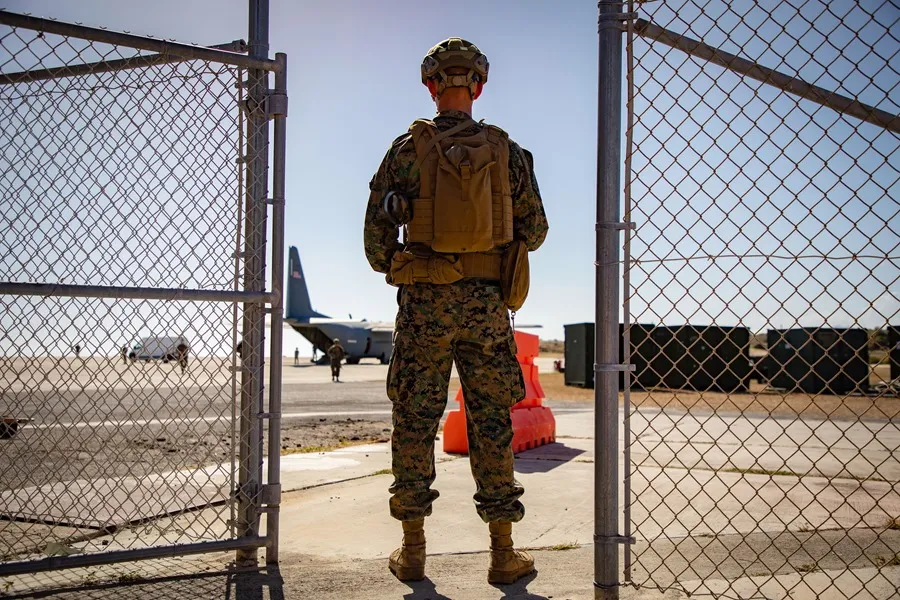
The Yemeni Mansoor Adayfi spent 14 years in Guantánamo and ended up released without charges. Along with him, 15 other former inmates criticize that the Donald Trump Administration has expanded the use of the naval base to detain undocumented migrants: “No one deserves to be thrown into a system created to erase them,” they say in an open letter.
“Guantánamo is not just a prison: it is a place where the law is deformed, dignity is stripped of and suffering is hidden behind barbed wires. We live it. We know the metallic noise of the doors, the weight of the shackles and the silence of a world that looked away,” says that letter to which EFE had exclusive access.
The letter is promoted by Adayfi, coordinator of the Guantánamo Project within CAGE International.
Guantánamo, as he adds in an interview with EFE, “is a black hole. It can’t be called a prison or detention center because that means there are certain rights.”
Therefore, in his opinion, we should not focus on the treatment that newcomers may have, but on why they send them there in the first place and stop it: “Guantánamo is one of the greatest human rights violations of the 21st century,” he emphasizes from Serbia.
Its London-based organization says it challenges the “state oppression” inspired by the “War on Terrorism” launched after the September 11, 2001 attacks in the United States. (11S), where about 3,000 people died.
CAGE International defends the right to due process and in the past has criticized attempts to tarnish its reputation for the cases it leads.
Trump made the decision to expand the use of Guantánamo on January 29 with an executive order to enable 30,000 beds at that naval base in Cuba for undocumented migrants.
The Immigration and Customs Enforcement Service (ICE) has been operating there for years a detention center managed independently of the prison for suspected jihadism, but until now it had only received a limited number of people intercepted at sea, mostly from Haiti and Cuba.
“This order not only allows injustice, it guarantees it. Detaining migrants in Guantánamo denies them constitutional protections, trapping them in the same legal limbo that we endure. This deliberate ambiguity allows abuse, just as it happened with us. We know firsthand what happens with a system designed to break people,” say the former hostages.
Among them are the Moroccan Ahmed Errachidi, the Algerians Lakhdar Boumediene and Sufyian Barhoumi, the Tunisian Hisham Sliti or the British Tarek Dergoul, Moazzam Begg, all repatriated without charges.
For the signatory group, sending migrants to Guantánamo is not a matter of security.
“It’s about power and control and using the darkness of Guantánamo to hide another injustice,” they add.
Earlier this month, a group of 15 human rights organizations, including the American Civil Liberties Union (ACLU), actually asked the Government for access to migrants sent there, denouncing a lack of transparency about their legal situation.
The first prisoners arrived in Guantánamo in 2002, as part of that ‘War on Terrorism’ launched by former Republican President George W. Bush (2001 – 2009) after 11S. Of the nearly 780 that there were, there are 15, of which only two are convicted.
For the ex-prisoners who support the letter, not closing that prison or taking into account its legacy has allowed both injustices to continue and “its expansion.”
Trump promised to send there “the worst illegal criminal immigrants who are a threat to the American people.”
“We refuse to allow others to be swallowed by the same nightmare that we endure. No one deserves to be thrown into a system created to erase them. We will not stop talking or fighting. We will not allow the horrors of Guantánamo to be repeated,” say the former inmates.
His message is clear. Not only do they want the prison to be closed and the executive order revoked, they also warn the Trump Administration that justice will be done. “Someday he will be accountable.”
International
MPV Denounces Electoral Blockade as Secretary-General is Disqualified for May Elections
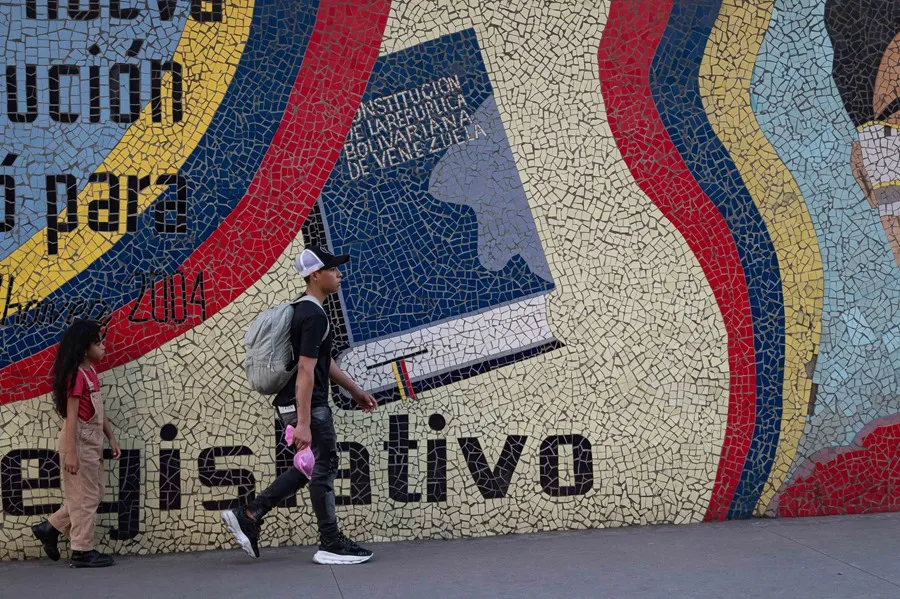
The anti-Chavista party Movement for Venezuela (MPV) denounced on Monday that it was “prevented” from submitting its candidates for the regional and legislative elections on May 25, elections rejected by opposition leaders Edmundo González Urrutia and María Corina Machado.
“MPV, being an active and recognized party in the National Electoral Council (CNE), was prevented from submitting candidates for the current electoral process,” stated the political group through a communiqué on X.
Additionally, the group denounced that its Secretary-General, Simón Calzadilla, was “suddenly disqualified,” as the opposition leader warned last Friday. He also explained that he attempted to access the CNE’s automated candidate submission system but, as he added, the portal showed that he was not authorized to create a user and submit the MPV candidates.
For the party, its “strong decision” to participate in the May elections “highlighted the true nature of this electoral process,” which it described as “extremely flawed.”
International
Maduro Plans Major Workers’ March on May 1st to Defend Venezuela’s Freedom
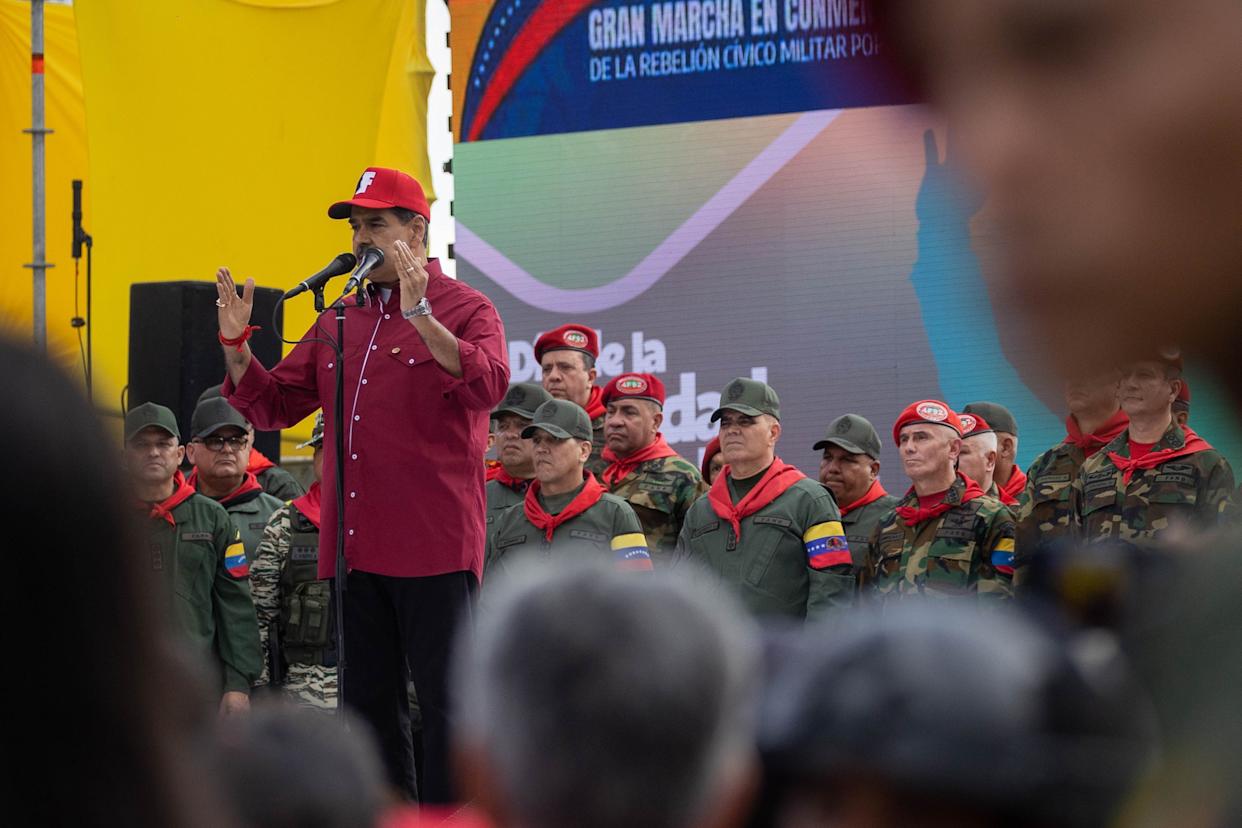
Nicolás Maduro, who swore in for a third term in January following his controversial re-election, called on Monday for the “working class” and the “armed people” to gather for a concentration on May 1st for peace, as part of the celebration of International Workers’ Day.
“Let’s have a powerful march of the working class, the combat bodies, and the Bolivarian National Militia in all the cities of the country, from end to end, working class and armed people in the streets shouting for peace,” said the chavista leader in a broadcast on the state channel Venezolana de Televisión (VTV), surrounded by military authorities.
He also stated that Venezuela is more armed than “ever” to “defend the sacred dream of a free homeland, the sacred soil of a heroic land, Venezuela.”
Maduro called on all military personnel to “stay in shape” with a “deployment capacity” and also to have “a very clear view of the entire national territory.”
International
Venezuela accuses Guyana of “warlike intentions” after UK defense deal
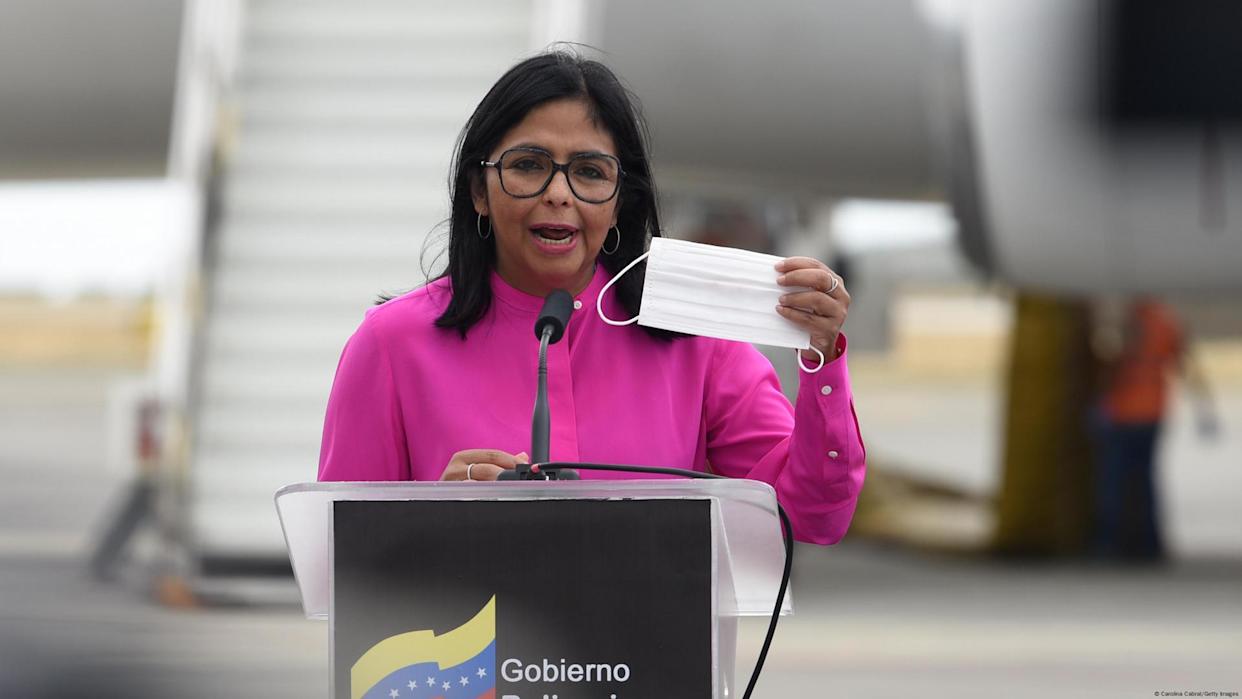
Venezuelan Vice President Delcy Rodríguez denounced what she called “warlike intentions” from Guyana on Saturday (April 12, 2025), following the signing of a Memorandum of Understanding (MoU) between Guyana and the United Kingdom aimed at strengthening bilateral defense cooperation.
“Guyana threatens Venezuela with its founding fathers. The UK and the U.S. are the architects behind the territorial dispossession of our Guayana Esequiba. These are the same actors who forged a fraudulent arbitration award in 1899 to strip Venezuela of its land,” Rodríguez stated via Telegram.
Rodríguez, who also serves as Venezuela’s Minister of Hydrocarbons, warned the region about “these drums of war, in clear violation of the CELAC declaration that recognizes Latin America and the Caribbean as a zone of peace.”
“Venezuela will stand firm in defending its legitimate rights, sovereignty, and territorial integrity in all scenarios,” she added.
-

 International4 days ago
International4 days agoDominican Republic mourns over 200 dead in Jet Set nightclub collapse
-

 Central America4 days ago
Central America4 days agoNicaragua seeks ICJ intervention in Gaza conflict amid escalating violations
-

 Central America4 days ago
Central America4 days agoU.S. Government says deported migrants should remain in El Salvador for life
-

 International4 days ago
International4 days agoTwo fans killed in gate collapse outside Chile’s Estadio Monumental
-
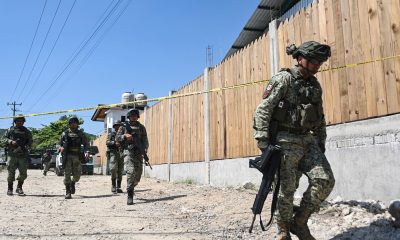
 International2 days ago
International2 days agoTrump Authorizes Military to Take Control of Federal Land Along U.S.-Mexico Border
-

 International4 days ago
International4 days agoItalian biologist found dead in Colombia; investigation underway
-
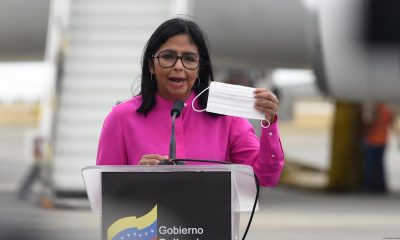
 International2 days ago
International2 days agoVenezuela accuses Guyana of “warlike intentions” after UK defense deal
-

 International2 days ago
International2 days agoNightclub Collapse in Dominican Republic Claims 226 Lives
-

 International4 days ago
International4 days agoMaduro signs Economic Emergency Decree to counter U.S. sanctions on Venezuela
-

 Central America2 days ago
Central America2 days agoSpanish Ex-Congresswoman Calls for ‘Bukele-Style’ Security Policies in Europe
-

 International4 days ago
International4 days agoVenezuelan oil shipments resume after tariff-induced delays
-
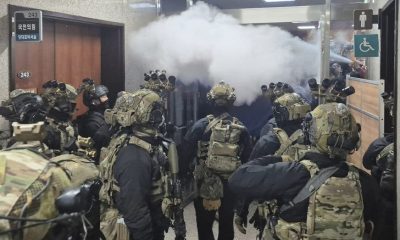
 International4 days ago
International4 days agoConstitutional Court Removes Yoon: Lee Jae-myung’s Rise Sparks Warnings of a Radical Shift
-

 Central America2 hours ago
Central America2 hours agoHonduran Police Offer $135K for Tips Leading to the Arrest of Romeo Vásquez
-

 International2 hours ago
International2 hours agoMaduro Plans Major Workers’ March on May 1st to Defend Venezuela’s Freedom
-

 International2 hours ago
International2 hours agoMPV Denounces Electoral Blockade as Secretary-General is Disqualified for May Elections















